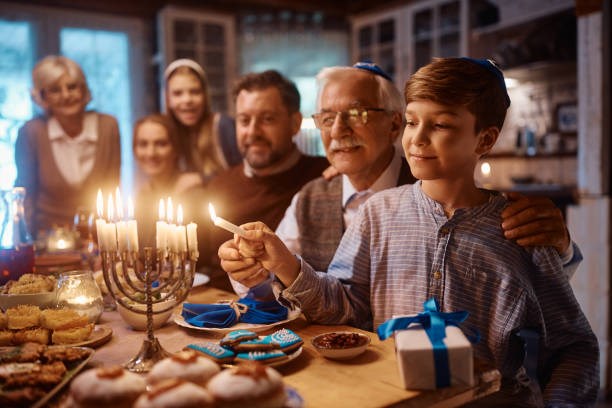The Jewish winter Festival of Lights, beginning this year on Thursday evening, Dec. 7, and lasting for eight nights, celebrates a three-year war against religious oppression ending in the year 165 B.C.E. We know that history. But, correctly spelling the name of the holiday that notes the victory correctly is elusive.
Is it Chanukah (my choice) or Hanukkah? In fact, despite decades of citing school kids for misspelling the holiday name, there is no correct English spelling for the name of this minor Jewish holiday that commemorates the victory of the Maccabees (Hasmoneans were their tribal name) over the Syrian-Greeks in the second pre-Christian century. The English language simply has no guttural sound, like that at the end of the name of the composer Bach.
Nonetheless, Chanukah annually recognizes this existential three-year battle for religious freedom by the Jewish community against the tyranny of the Syrians (who were given leadership of the area by the Greeks). Jews were not allowed to practice Judaism under severe penalties. They fought back and won.
The reason for an eight-day festival is that a legend recalls the availability of only one day’s supply of kosher lamp oil that was required to re-dedicate the Jerusalem Temple for Jewish worship (the Hebrew root of the word “Chanukah” is both dedication and education). Tradition teaches that a miracle occurred, allowing the oil to burn in the menorah for eight days. Hence the celebration of the eight days of Chanukah, our longest Jewish holiday.
To commemorate the two significant events of the holiday - the continued existence of Judaism (which allowed for Christianity and Islam to arrive centuries later) and the oil of the menorah - Jews eat Chanukah foods prepared with oil, e.g. jelly donuts (called sufganiyot, in Hebrew) and latkes (Eastern European potato pancakes).
It’s important to note that Chanukah is not the “Jewish Christmas.” But what about the presents? In Judaism, we regularly express our thanks by helping others less fortunate - providing resources to hospitals, schools, the aged, the poor, etc. So too for our children. We offer them the opportunity to learn about giving to others by giving something to them to pass along. However, kids will be kids, in whatever denomination they fall, and many enjoy receiving gifts during this holiday as well.
So whether it’s Chanukah or Hanukkah, it’s still a time to celebrate a rich 2,000-year-old heritage of religious freedom, and to give thanks for the right to be different.
Chag Ha-Urim Sameach, have a Happy Holiday of Lights, however you spell it.
Rabbi Dr. Robert L. Kravitz is well known in metropolitan Phoenix for his support of human and civil rights, and effective law enforcement. He serves as senior chaplain with the Scottsdale Police Department and coordinating chaplain for the Hospital Chaplaincy program of Jewish Family & Children’s Service.



